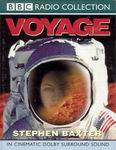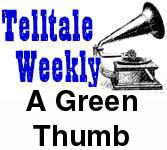
 84.2 Minutes Of Algis Budrys
84.2 Minutes Of Algis Budrys
By Algis Budrys, Read by Algis Budrys
1 Cassette – 84.2 Minutes [UNABRIDGED]
Publisher: Unifont Company
Published: 1995
ISBN: 1886211019
Themes: Science Fiction / Interstellar Travel / War / Immortality / Post Apocalypse / Fairy Tales / Alternate History / Parallel Worlds /
The four stories in this rare collection are densely packed with terrific science fiction ideas and all four share a haunted bittersweet quality. Algis Budrys lets the power of his text completely rule over his performance. Budrys barely distinguishes between the characters; he reads it in an almost conspiratorial style saying, “If you don’t like them, there’s very little more I can say. But I secretly think you will like them, in which case there’s nothing much more I need to say”. His philosophy has extended into the production as well, this is a very utilitarian audiobook, pages can be heard turning in the background while he reads, the cover art is completely non-existent and the title is hardly evocative of much at all, but despite it all 84.2 Minutes Of Algis Budrys is a worthy addition to any science fiction audio fan’s library. The only hard part may be getting a hold of one!
Stories Included:
“The Distant Sound Of Engines”
Severely maimed in an automotive accident, a patient recovering in hospital listens as his roommate, a dying man spouts formulas for faster than light travel, the alloy specifications for ultra strong spacecraft hulls and everything else necessary to make humans an interstellar species. First published in The Magazine of Fantasy and Science Fiction’s March 1959 issue.
“Explosions!”
On a distant water-world that was long ago colonized by humans, a pirate king comes up with a plan to unify the many islands of his planet, and do it by force. “Explosions!” was written under the pseudonym William Scarff and first appeared in Tomorrow Speculative Fiction’s April 1993 issue.
“The Price”
The Earth’s civilizations have been destroyed, fewer than 100 people survive, mankind’s last hope is an enigmatic hunchback who’s been imprisoned for more than 150 years. He’d been chained in various dungeons or enslaved in forced labour camps, but when Europe was annihilated in a global war, and every person there was destroyed, he alone walked out. First published in The Magazine of Fantasy and Science Fiction’s February 1960 issue
“Never Meet Again”
England surrendered in 1940, by 1941 German U-boats ruled the Atlantic, by 1942 the Russian’s had surrendered at Stalingrad. Now fifteen years later a respected researcher in the Greater German Reich has finished his life’s work, a machine that can access alternate worlds. “Never Meet Again” was first published in the 1958 anthology The Unexpected Dimension.
Posted by Jesse Willis

 A Green Thumb
A Green Thumb A Hero Of The Empire
A Hero Of The Empire Eaters of The Dead
Eaters of The Dead The Man In The High Castle
The Man In The High Castle